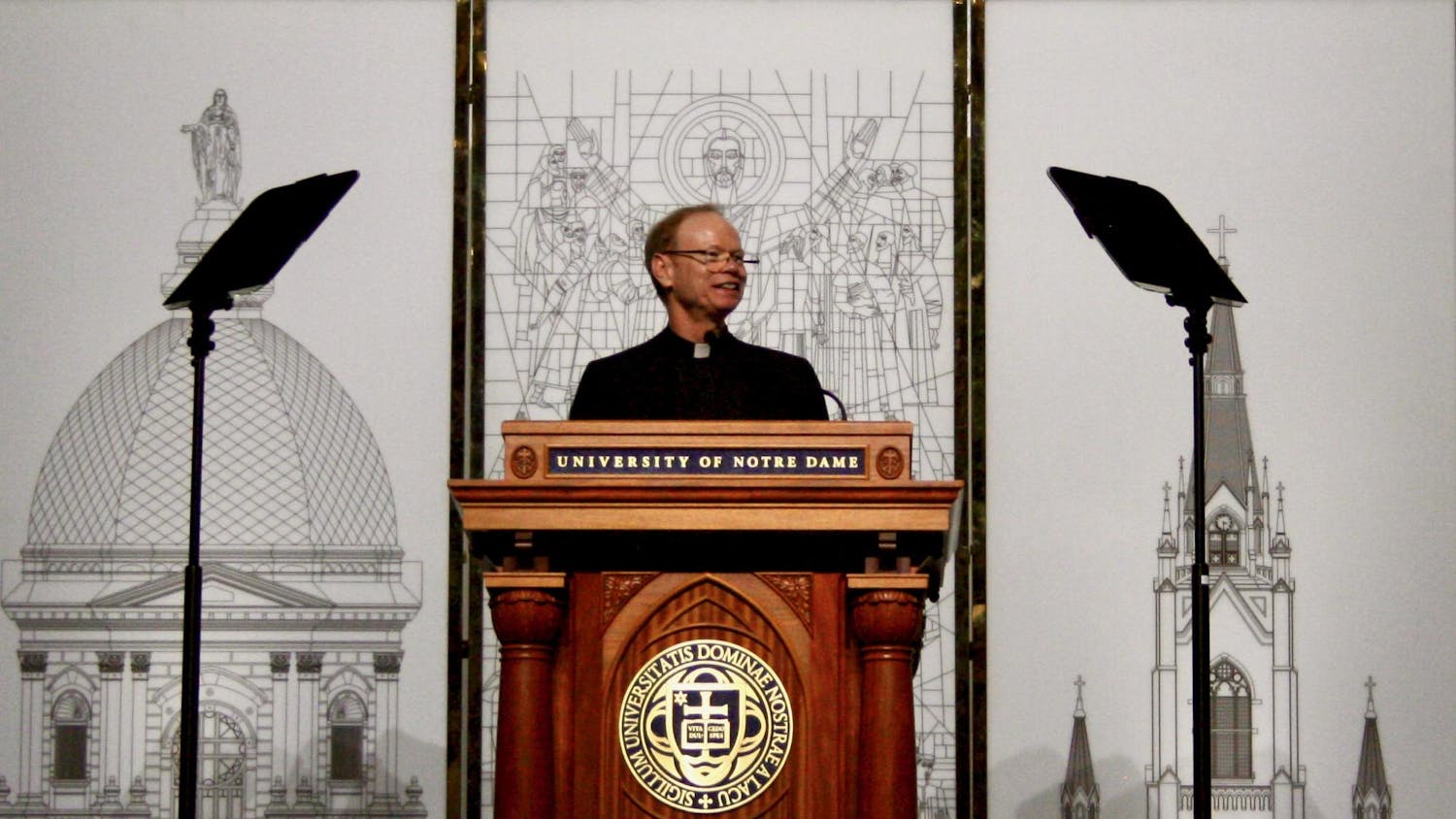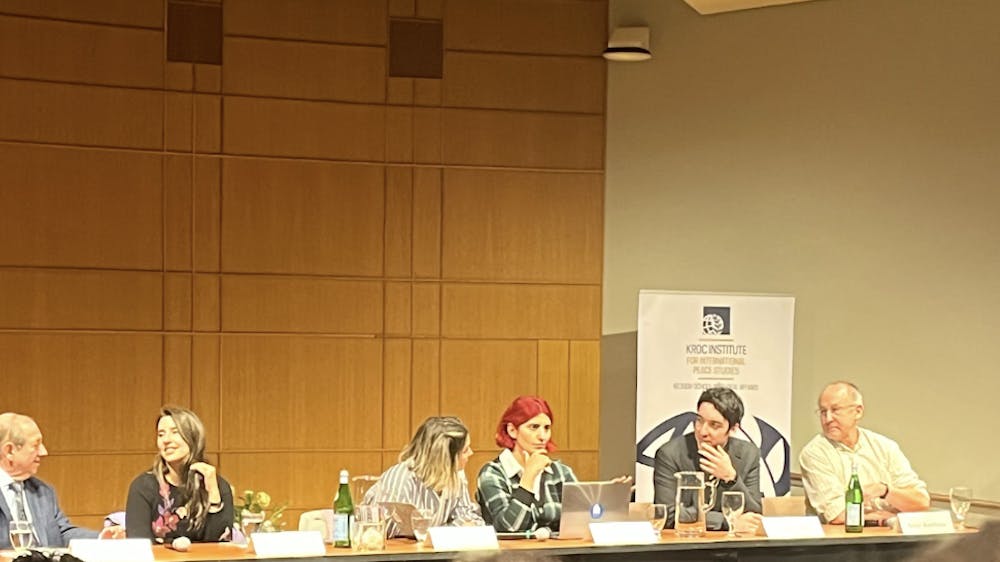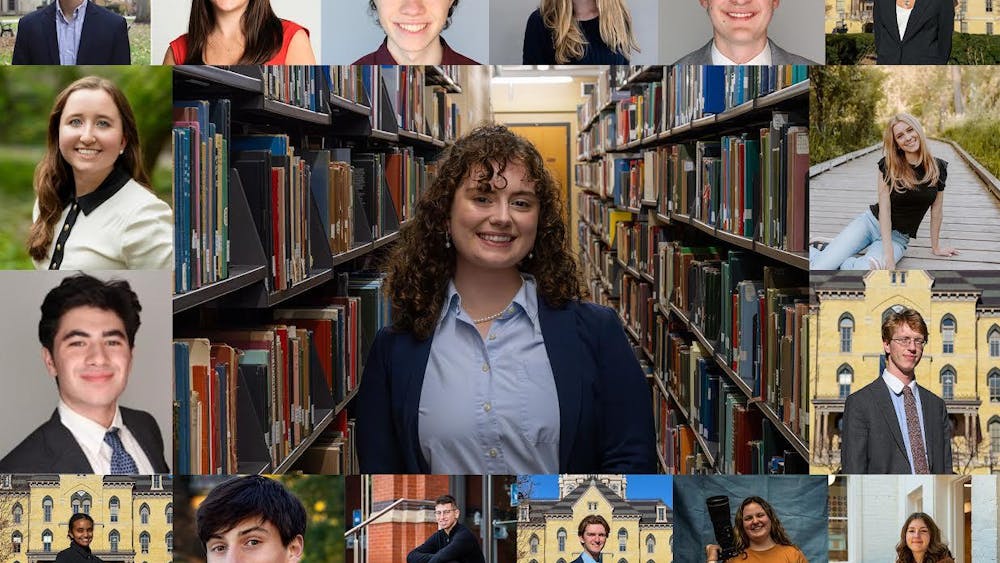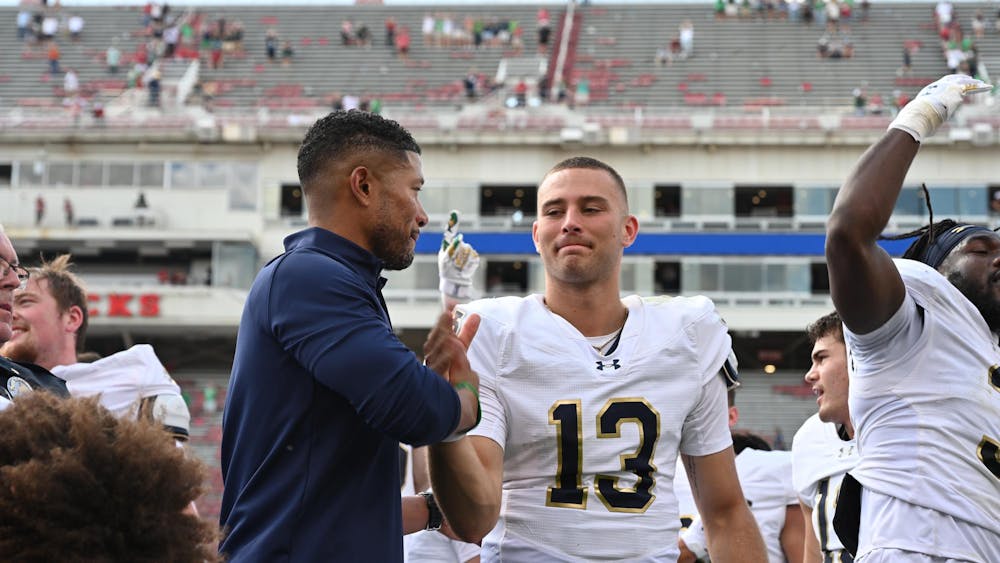Notre Dame professors will teach in three formats this semester: fully-virtual, hybrid or in-person with a virtual component for students in quarantine or choosing to take class online this semester. The majority of professors teaching in a full-virtual format have underlying medical conditions or they have a family member who does.
Professor David Hutchison in the Mendoza College of Business opted to teach fully-virtually this semester due to family health concerns.
“My wife suffers from lupus rheumatoid arthritis, chronic lung issues with pneumonia,” he said. “She’s an asthmatic, and she’s got probably a half a dozen or so other autoimmune conditions. So, all of that leaves her at very high risk, should she contract the virus.”
Hutchison said he also has a daughter who does not currently live at home, but is likely to for a meaningful period of time during the term, has a condition called POTS (postural orthostatic tachycardia syndrome) and another condition called mast cell disorder and mast cell disorder, which puts her in a very high-risk position relative to the coronavirus.
Hutchison primarily teaches real estate classes in the finance department of Mendoza. His classes will take place synchronously as opposed to asynchronously.
“Part of what makes Notre Dame the unusual and special place that it is is that it emphasizes community,” he said. “My job has historically been to be a part of your students’ community, as an instructor and as an advisor and, basically, mentor; I’ve worked my duration here at Notre Dame with that in mind. … I bet you would hear from them — the vast majority of [professors] — that we have no real interest in doing things this way.”
Typically, Hutchison offers his help to students undergoing career discernment and interview preparation for internships and full-time positions. He emphasized the importance of adding extra time throughout his day to communicate with students via phone, text message, email and Zoom.
“It makes a whole lot of sense for me to try to accommodate what you folks are comfortable with because there’s one of me and a whole lot of you,” he said.
Professor Tatiana Botero in the College of Arts and Letters is also teaching virtually this semester.
Botero said she has underlying conditions that make her susceptible to the coronavirus. She also said this allows her to stay home with her 13-year-old son during the day, who would have otherwise been home alone.
“It would have been very challenging to oversee his school day at home — e-learning — while I was at the University,” she said.
Botero is teaching two Spanish language classes this semester both with two sections of students. She plans to teach synchronously most weeks with an occasional Friday asynchronously for project-work.
She said she preferred to teach her language classes virtually because it allows for facial expressions and better enunciation than when wearing masks and social distancing in-person. This, in turn, helps foster community among her students, she said.
“In class discussion, it’s just not feasible to have pair-work, collaborative work, when you have to be 6 feet apart in the classroom. And then also wearing masks, myself included, the students can’t really see how I’m speaking,” Botero said.
She said pair-sharing — when each student has the opportunity to think and share their thoughts in the language — is a core component of her classes.
“I’m really happy we are [using] Zoom because we can still have the pair-work in breakout rooms, then we can come back to the class in gallery view to see all the students and they can see me,” Botero said.
Using Zoom allows her to check-in on the pairs working together in breakout rooms as the host.
Both Hutchison and Botero emphasized the importance of fostering community and collaboration in and out of class through the use of technology during this semester.
Read More
Trending









